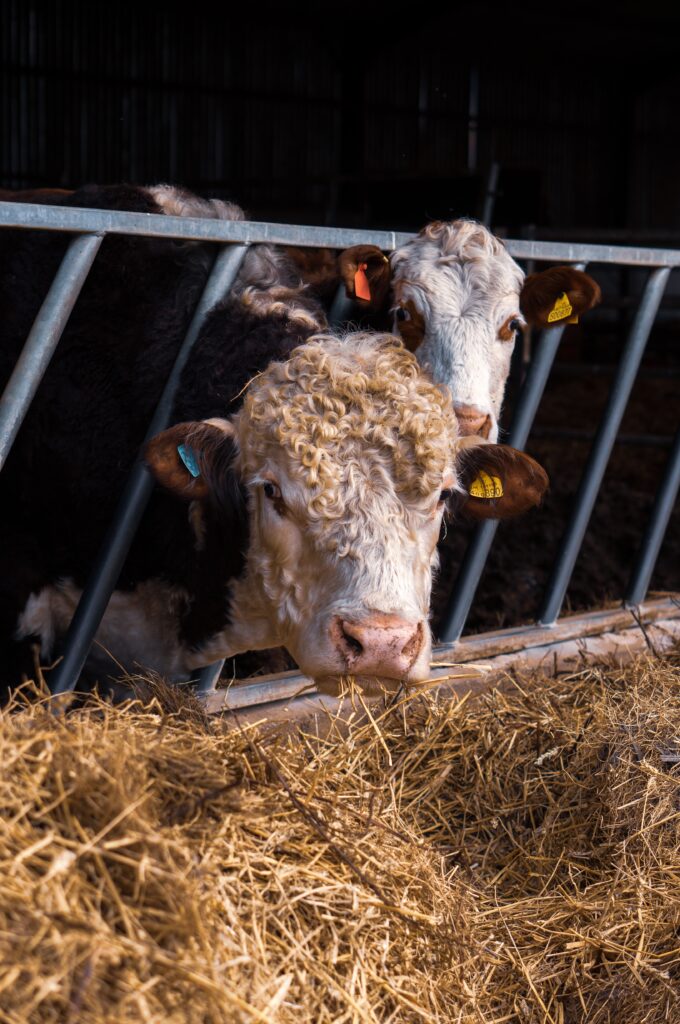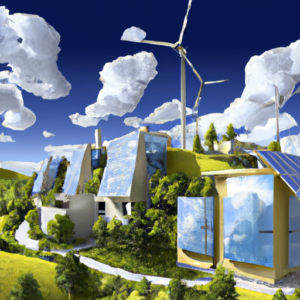What Is A Vegan Lifestyle: Introduction
Have you ever wondered what is a vegan lifestyle? A vegan lifestyle is not just about what you eat, but it encompasses an entire way of living that focuses on excluding the use of animals for food, clothing, or any other purpose. By adopting a vegan lifestyle, you are not only making a conscious choice to prioritize compassion towards animals but also making a significant contribution towards reducing carbon emissions, conserving water resources, and preserving biodiversity. In this article, we will explore the various aspects of a vegan lifestyle and delve into how it benefits the environment. Get ready to discover the power of plant-based living!
What is a Vegan Lifestyle
A vegan lifestyle refers to a way of living that consciously avoids the use of any animal products, whether it be in the diet, clothing, or other aspects of daily life. It is more than just a diet; it is a philosophy that seeks to minimize harm to animals and promote environmental sustainability. By embracing a vegan lifestyle, you are making a compassionate choice to abstain from consuming or using animal-derived products and instead opting for cruelty-free alternatives.
Definition of veganism
Veganism is the practice of abstaining from the use of animal products, particularly in diet, and an associated philosophy that rejects the commodity status of animals. Vegans choose to avoid consuming meat, poultry, fish, dairy products, eggs, honey, and any other animal-derived ingredients. Additionally, they also refrain from using products made from animal sources or that have been tested on animals. By adopting a vegan lifestyle, individuals are actively seeking to minimize animal suffering and promote a more sustainable and ethical way of living.
The principles of a vegan lifestyle
The core principles of a vegan lifestyle revolve around three main aspects: animal rights, environmental sustainability, and personal health. Advocates believe that animals have the inherent right to be treated with respect and should not be exploited for any purpose, including for human consumption. Furthermore, adopting a vegan lifestyle helps counteract the environmental devastation caused by animal agriculture and reduces the carbon footprint associated with the production of animal-based products. Finally, many people choose a vegan lifestyle for its potential health benefits, as a plant-based diet is often associated with lower risks of chronic diseases such as heart disease, diabetes, and certain types of cancer.
Foods excluded from a vegan diet
A vegan diet excludes all animal-derived products, including meat, poultry, fish, dairy, eggs, and honey. This means that vegans rely on plant-based sources of protein, such as legumes, tofu, tempeh, seitan, and various nuts and seeds. They also consume ample amounts of fruits, vegetables, whole grains, and plant-based fats to ensure a well-rounded and nutrient-rich diet. Veganism encourages exploring diverse flavors and incorporating a wide variety of food choices, making it a fulfilling and satisfying way of eating.
Environmental Impact of Animal Agriculture
Animal agriculture, particularly industrial farming practices, has a significant impact on our environment. The detrimental effects of this industry can be seen in various areas, including water usage and pollution, deforestation and land degradation, greenhouse gas emissions, and the loss of biodiversity.
Water usage and pollution
Animal agriculture is a water-intensive industry. Livestock farming requires vast amounts of water for drinking, feed production, and cleaning purposes. The excessive water usage for animal agriculture puts a strain on water resources, especially in regions already experiencing water scarcity. Additionally, the runoff from animal waste and the use of chemical fertilizers and pesticides on feed crops contribute to water pollution, contaminating rivers, lakes, and groundwater sources.
Deforestation and land degradation
To make way for livestock farming and feed production, vast amounts of land are cleared through deforestation. This destruction of natural habitats leads to the loss of valuable ecosystems and the displacement of plant and animal species. The process of deforestation also leads to significant carbon emissions, as trees store carbon dioxide and their removal releases it back into the atmosphere. Moreover, the intensive grazing and overgrazing of lands for livestock contribute to soil erosion, further degrading land quality and reducing its potential for sustainable agriculture.
Greenhouse gas emissions
Animal agriculture is a major contributor to greenhouse gas emissions, which are a leading cause of climate change. Livestock farming releases significant amounts of methane, a potent greenhouse gas that has a much higher warming effect than carbon dioxide. Additionally, the production and transportation of animal feed, the processing and packaging of animal products, and the deforestation associated with expanding livestock production all contribute to the industry’s carbon footprint.
Loss of biodiversity
The expansion of animal agriculture has severe consequences for biodiversity. As more land is cleared for livestock farming, natural habitats are destroyed, and numerous plant and animal species face extinction. The loss of biodiversity disrupts ecosystems, impacting the delicate balance between species and leading to imbalances in food chains. Protecting biodiversity is essential for maintaining healthy ecosystems and ensuring the long-term survival of all species, including our own.

Check Out Our Top Eco Friendly Product Picks On Amazon Here
Reducing Carbon Footprint
One of the most significant benefits of adopting a vegan lifestyle is the positive impact it can have on reducing carbon emissions and mitigating climate change. The production of animal-based foods is a highly resource-intensive process that contributes significantly to greenhouse gas emissions. By shifting towards plant-based diets and embracing sustainable farming practices, we can significantly reduce our carbon footprint and help combat climate change.
Plant-based diets and carbon emissions
Plant-based diets are inherently more climate-friendly than diets that rely heavily on animal products. The production of plant-based foods generally requires fewer resources, such as land, water, and energy, compared to animal agriculture. Plants also absorb carbon dioxide from the atmosphere, acting as natural carbon sinks. By consuming plant-based foods, individuals can significantly reduce their carbon emissions and contribute to a more sustainable food system.
Comparison of greenhouse gas emissions
Studies consistently show that the production of animal-based foods has a much higher greenhouse gas emissions footprint compared to plant-based foods. Livestock farming, particularly the intensive confinement systems of industrial agriculture, releases substantial amounts of methane and nitrous oxide – both potent greenhouse gases. Additionally, the entire supply chain of animal products, including feed production, transportation, and processing, contributes to their overall carbon emissions. In contrast, plant-based foods have lower carbon footprints, with some plant proteins producing emissions that are up to 90% lower than their animal-based counterparts.
Sustainable farming practices
In addition to promoting plant-based diets, adopting sustainable farming practices is essential for reducing the carbon footprint of our food system. Regenerative agriculture approaches focus on building healthy soil, minimizing synthetic inputs, and restoring ecosystems. By embracing these practices, farmers can sequester more carbon in the soil, reduce greenhouse gas emissions, and improve the overall resilience of their farms. Organic farming methods also prioritize ecological sustainability, avoiding synthetic pesticides and fertilizers while nurturing soil health and biodiversity. Supporting farmers who employ these sustainable practices is crucial in transitioning to a more environmentally friendly and resilient food system.
Conservation of Water Resources
Water is a vital resource that is essential for all life on Earth. However, animal agriculture places a tremendous strain on water resources through excessive consumption and pollution. By shifting towards plant-based diets and more sustainable farming practices, we can conserve water resources and protect this precious commodity for future generations.
Water consumption in animal agriculture
Animal agriculture is a highly water-intensive industry. Livestock, including cattle, sheep, and pigs, require vast amounts of water for drinking, cleaning, and irrigation purposes. Additionally, the production of animal feed crops, such as soy and corn, also contributes to significant water consumption. As water scarcity becomes an increasingly pressing global issue, it is crucial to recognize the water footprint of our food choices and work towards reducing the water-intensive nature of animal agriculture.
Water pollution from animal waste
The concentration of animals on large-scale industrial farms results in the generation of enormous amounts of animal waste. This waste, including manure and urine, often ends up in nearby water bodies or leaches into the groundwater supply. The runoff from animal operations contains high levels of nitrogen, phosphorus, and bacteria, all of which can pollute water sources and have detrimental effects on aquatic ecosystems and human health. By reducing our consumption of animal products, we can help alleviate the pollution caused by animal waste.
Water scarcity and global agriculture
Water scarcity is a pressing global challenge that affects agriculture and food production. With the current population growth and changing climatic conditions, ensuring access to sufficient water for agriculture is becoming increasingly difficult. By shifting towards plant-based diets, which have a lower water footprint compared to animal-based diets, we can reduce the overall demand for water in agriculture. This shift will help alleviate pressure on water resources and contribute to a more sustainable and resilient food system.

Deforestation and Land Use
Animal agriculture, particularly the expansion of livestock farming, drives deforestation at an alarming rate. This destruction of forests is not only detrimental to biodiversity but also exacerbates climate change by releasing stored carbon dioxide back into the atmosphere. Shifting towards sustainable land management practices and reducing our reliance on animal products are essential steps in addressing deforestation and preserving our planet’s precious ecosystems.
Expansion of animal agriculture
The expansion of animal agriculture, particularly in regions like the Amazon rainforest, is a leading cause of deforestation. To make room for vast herds of cattle and the production of animal feed crops, large areas of forests are cleared, resulting in significant habitat loss for countless plant and animal species. The rapid deforestation driven by animal agriculture is an urgent environmental concern that requires immediate attention and action.
Impact on forests and biodiversity
Forests play a critical role in maintaining biodiversity and regulating the Earth’s climate. When forests are cleared for livestock farming or feed production, the loss of habitat leads to significant biodiversity loss and disrupts the intricate balance between species. Many unique and endangered species are directly affected by deforestation caused by animal agriculture. Protecting and restoring forests is essential for preserving biodiversity, mitigating climate change, and ensuring the long-term sustainability of our planet.
Sustainable land management
To address deforestation and land degradation, it is crucial to promote sustainable land management practices. This includes supporting agroforestry systems that integrate trees with agricultural practices, as well as reforestation efforts in areas that have been cleared. By transitioning to more sustainable farming systems, such as regenerative agriculture or organic farming, we can restore soil health, protect natural habitats, and reduce the need for further land conversion.
Preserving Biodiversity
Biodiversity, the variety of life on Earth, is essential for ecological balance and the stability of ecosystems. However, animal agriculture poses significant threats to biodiversity through habitat destruction, species extinction, and ecosystem disruption. By embracing a vegan lifestyle and supporting conservation efforts, we can contribute to the preservation of biodiversity and protect the invaluable services provided by intact ecosystems.
Threats to ecosystems from animal agriculture
Animal agriculture plays a significant role in the degradation and destruction of ecosystems worldwide. From deforestation to make way for livestock farming to the pollution of water bodies with animal waste, these activities disrupt the delicate balance of ecosystems. The loss of essential habitats and the displacement of plant and animal species contribute to the decline of biodiversity, ultimately affecting the overall health and resilience of ecosystems.
Extinction risk for species
The expansion of animal agriculture puts countless species at risk of extinction. As natural habitats are cleared for livestock farming or to grow feed crops, many plants and animals lose their homes and are unable to adapt to the changing landscape. Numerous species, including iconic wildlife like elephants, gorillas, and orangutans, are threatened by deforestation driven by animal agriculture. By combating the destructive practices of this industry and supporting conservation efforts, we can help prevent further species extinction.
Protecting habitats and ecosystems
Preserving habitats and safeguarding ecosystems is crucial for maintaining biodiversity. By advocating for more sustainable land management practices, supporting protected areas, and contributing to conservation organizations, we can actively protect valuable habitats and the species that call them home. Additionally, by reducing our consumption of animal products and embracing a vegan lifestyle, we can reduce the demand for resources that drive deforestation and habitat destruction, indirectly contributing to the preservation of biodiversity.

Reducing Pollution
Animal agriculture is a significant source of pollution, with adverse effects on both the environment and human health. The excessive use of antibiotics, air pollution from factory farms, and water pollution from animal waste all contribute to the pollution associated with this industry. Transitioning to more sustainable farming practices and reducing our reliance on animal products can help alleviate pollution and protect the well-being of our planet and ourselves.
Air pollution from animal agriculture
Factory farms, where animals are confined in large numbers, contribute to significant air pollution. The concentrated animal feeding operations release substantial amounts of ammonia, hydrogen sulfide, and particulate matter into the air. These pollutants can have detrimental effects on both human health and the environment, leading to respiratory problems, the formation of smog, and the acidification of soil and water. By shifting towards more sustainable farming practices and supporting less intensive animal farming methods, we can reduce air pollution and improve air quality.
Water pollution from factory farming
Animal waste, including manure and urine, generated by industrial livestock farming, poses a significant threat to water bodies. The runoff from these operations contains high concentrations of nitrogen and phosphorus, which can pollute rivers, lakes, and groundwater sources. This pollution has adverse effects on aquatic ecosystems, leading to algal blooms, oxygen depletion, and the death of marine life. By reducing our consumption of animal products, we can contribute to the reduction of water pollution and protect the health of our water resources.
Effects on human health
The pollution resulting from animal agriculture can have direct implications for human health. Air pollution from factory farms can exacerbate respiratory conditions and contribute to the development of asthma. Water pollution from animal waste can contaminate drinking water sources, leading to waterborne diseases and other health issues. Additionally, the excessive use of antibiotics in industrial animal farming promotes the development of antibiotic-resistant bacteria, posing a significant threat to public health. By reducing the pollution associated with animal agriculture, we can create healthier environments for both humans and animals.
Addressing Climate Change
Animal agriculture is a major contributor to climate change, responsible for significant greenhouse gas emissions. The industry’s reliance on fossil fuels, deforestation, and the release of methane from livestock all contribute to its carbon footprint. Transitioning to more sustainable food systems, embracing plant-based diets, and supporting regenerative agricultural practices are essential steps in addressing climate change and creating a sustainable future.
Role of animal agriculture in climate change
Animal agriculture is a significant driver of climate change, responsible for more greenhouse gas emissions than the entire transportation sector combined. The production and transport of animal feed, the processing of animal products, and the deforestation resulting from expanding livestock farming all contribute to the industry’s carbon footprint. Additionally, livestock, particularly ruminant animals like cattle, produce large amounts of methane, a potent greenhouse gas. By reducing our consumption of animal products, we can directly decrease the industry’s impact on climate change.
Transitioning to sustainable food systems
Transitioning to more sustainable food systems is essential for mitigating climate change. This includes adopting plant-based diets that have lower carbon footprints, reducing food waste, and supporting regenerative agricultural practices that prioritize carbon sequestration and soil health. By diversifying our food sources, reducing our reliance on animal products, and embracing local and seasonal produce, we can create more resilient and climate-friendly food systems.
Mitigation strategies
To address the climate crisis, it is crucial to implement mitigation strategies that reduce, capture, and store greenhouse gas emissions. These strategies include transitioning to renewable energy sources, enhancing energy efficiency, and prioritizing sustainable land management practices. By adopting regenerative agricultural methods, farmers can sequester carbon in the soil, helping to offset the emissions generated by the food system. Additionally, investing in research and development of alternative protein sources, such as plant-based proteins or cultivated meat, can contribute to a more sustainable and climate-friendly food system.

Sustainable Farming Practices
Transitioning to sustainable farming practices is essential for minimizing the environmental impact of agriculture and ensuring long-term food security. Regenerative agriculture and organic farming methods prioritize soil health, biodiversity, and ecological sustainability, reducing the need for synthetic inputs and fostering resilient farming systems. Investing in these practices and supporting farmers who embrace them is crucial for creating a more sustainable and resilient food system.
Regenerative agriculture
Regenerative agriculture focuses on building healthy soils, enhancing biodiversity, and sequestering carbon to mitigate climate change. This approach emphasizes practices such as cover cropping, crop rotation, minimizing tillage, and integrating livestock into cropping systems. By adopting regenerative agriculture methods, farmers can improve soil health, increase water retention, reduce soil erosion, and enhance the overall resilience of their farms. Supporting farmers who implement regenerative practices is crucial for promoting sustainable agriculture and protecting the environment.
Organic farming methods
Organic farming methods prioritize ecological sustainability and prioritize the use of natural inputs over synthetic chemicals. Organic farmers avoid the use of synthetic pesticides, herbicides, and fertilizers, opting instead for natural alternatives. By nurturing soil health, minimizing soil erosion, and promoting biodiversity, organic farming practices contribute to the long-term sustainability of agriculture. Choosing organic products and supporting organic farmers encourages the growth of this more environmentally friendly approach to farming.
Alternative protein sources
Investing in research and development of alternative protein sources is crucial for diversifying our food system and reducing the reliance on animal agriculture. Plant-based proteins, such as legumes, tofu, tempeh, and seitan, offer nutrient-dense alternatives to animal-based proteins. Additionally, the emerging field of cultivated meat, which involves growing meat from animal cells in a laboratory setting, holds promise for reducing the environmental impact of meat production. Embracing these alternative protein sources can help create a more sustainable and ethical food system.
Benefits for Future Generations
Embracing a vegan lifestyle and promoting environmentally sustainable practices have numerous benefits for future generations. By prioritizing long-term sustainability, fostering a shift in societal mindset, and providing educational opportunities, we can create a better future for our planet and the generations to come.
Long-term sustainability
Adopting a vegan lifestyle and embracing sustainable practices is crucial for ensuring the long-term sustainability of our planet. By minimizing the environmental impact of our food choices and reducing resource consumption, we can create a more resilient and balanced ecosystem. Preserving biodiversity, conserving water resources, and mitigating climate change are all essential components of a sustainable future that benefits future generations.
Shifting societal mindset
Promoting a shift in societal mindset is essential for creating lasting change. By raising awareness about the environmental impact of animal agriculture and the benefits of a vegan lifestyle, we can inspire individuals to make more conscious choices. Encouraging dialogue, fostering empathy towards animals, and highlighting the interconnectedness of all living beings can help shift societal norms towards a more compassionate and sustainable way of life.
Educational opportunities
Providing educational opportunities is key to empowering individuals to make informed choices about their lifestyle. By integrating sustainability and ethics into educational curricula, we can equip future generations with the knowledge and skills needed to create a more sustainable future. Education plays a vital role in fostering critical thinking, encouraging innovation, and inspiring future leaders to tackle the pressing environmental challenges we face.
In conclusion, a vegan lifestyle offers numerous benefits for both individuals and the environment. By adopting a vegan lifestyle, you are making a conscious choice to minimize harm to animals, reduce your carbon footprint, conserve water resources, protect biodiversity, and promote a more sustainable and ethical way of living. The environmental impact of animal agriculture, from water usage and pollution to deforestation and greenhouse gas emissions, is significant and requires immediate attention and action. By embracing sustainable farming practices, reducing pollution, and addressing climate change, we can create a more resilient and sustainable food system. The benefits of a vegan lifestyle reach far beyond the present, providing a more promising future for generations to come. So why not start making a positive impact on the environment today by embracing a vegan lifestyle?




